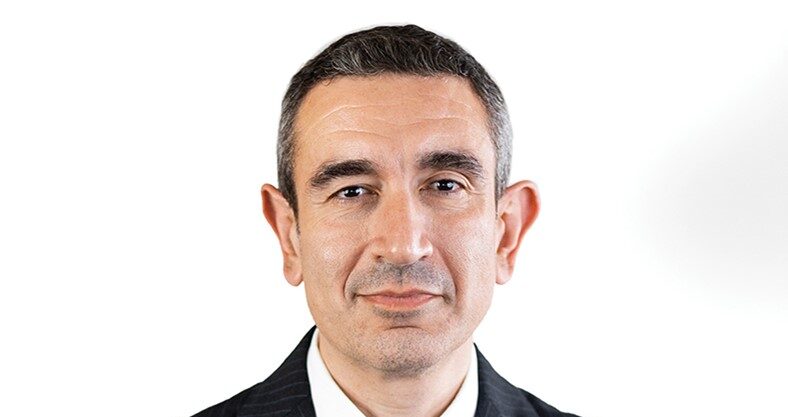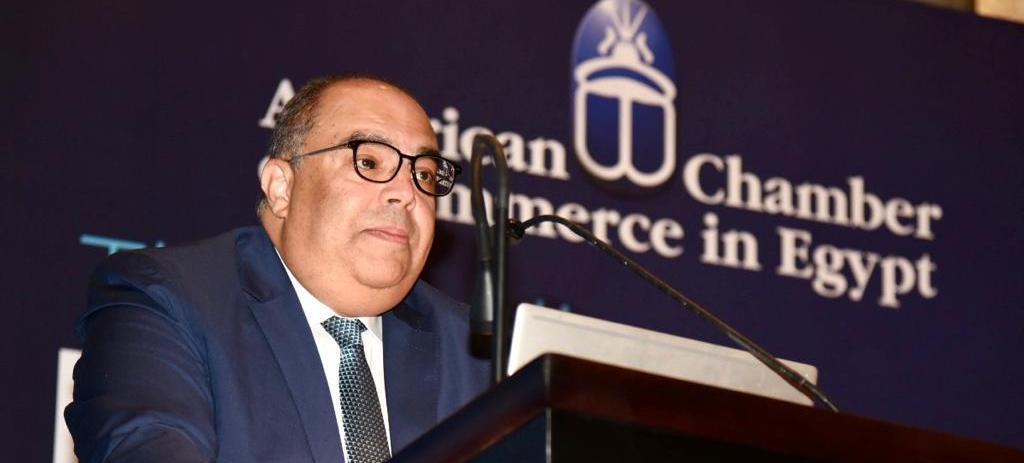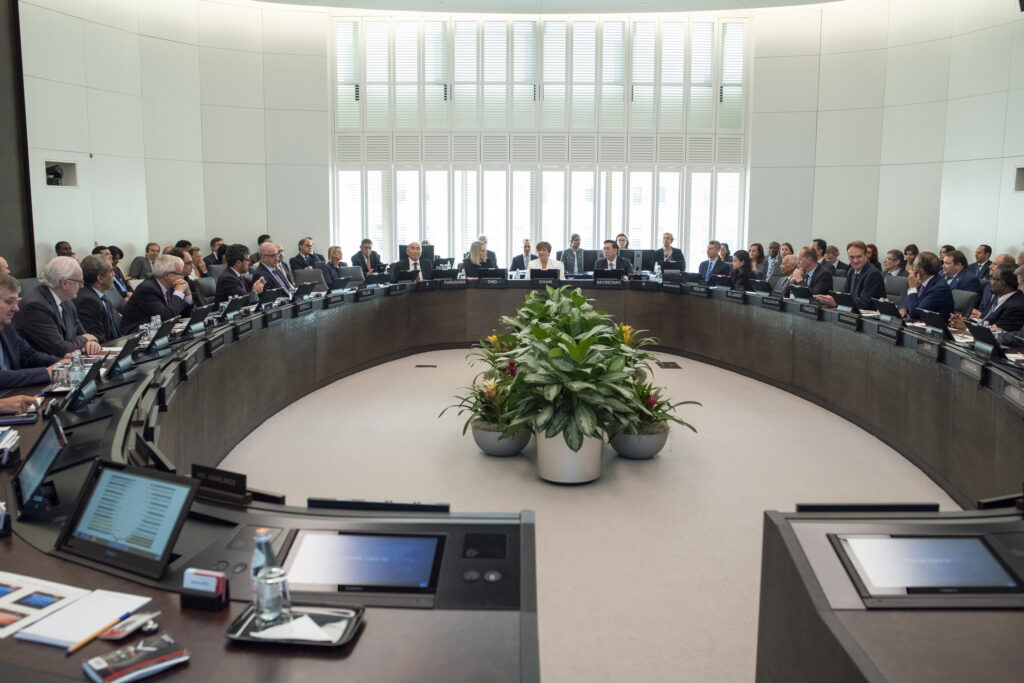Operating for over 60 years, Pfizer Egypt “has been evolving,” says Ahmed El Shazly, cluster lead ELI (Egypt, the Levant, Iraq) and country manager for Pfizer Egypt. “Now we are focusing on increasing our presence in the country and developing our approaches to better cater to the market’s needs.”
Besides vaccines, Pfizer Egypt produces medicines for cancer, rare diseases, inflammation & immunology, and hospitals. It also engages with local government initiatives that support millions of patients.
Pfizer Egypt plans to offer more of the latest and most advanced medicines that Pfizer Global has developed to support patients’ needs. “Amid the global uncertainties, the Egyptian market remains attractive in the region,” El-Shazly says. “Its potential comes from its sizable population and government efforts to improve the local pharmaceutical ecosystem in line with Egypt Vision 2030.”
The interview has been edited for length and clarity.
What is Pfizer Egypt’s scope of operation?
Though Pfizer is a global pharmaceutical company, we work in Egypt with a local identity. Through knowledge transfer, we invest in our local talents and local healthcare providers (HCPs) to ensure patients receive world-class service. In 2022, our 300-plus employees succeeded in delivering our breakthrough products to 7.6 million patients, and we are launching eight new products in 2023 to our portfolio of over 85 products.
We divide our local portfolio into two parts. The first is “legacy Pfizer” medicine, which we produce locally. The other is the “innovation business,” which is our most advanced pharmaceuticals.
What is your evaluation of the pharma market?
When we look at Egypt’s healthcare system, we see a positive transformation dedicated to Egyptian patients.
If we take a few steps back, we can see the significant progress made to improve healthcare quality and access to medicines, thanks to the government’s efforts.
Today’s local pharma market is highly resilient to regional and global uncertainties. That is evident in our plan to introduce eight new innovative medicines in Egypt this year alone. And we are on course to meet that target.
The other positive transformation in the local market is the more unified collaborative approach that the government is undertaking. For example, the Egyptian Drug Authority (EDA) has reduced the time needed to approve and register new medicines from eight to three months. That makes us a benchmark in the region. In addition, the Unified Procurement Agency (UPA) has been speeding up the use of new products and medicines.
How has the market changed since COVID-19?
Despite the challenges faced by all sectors during this exceptional period, pharma continued to play an imperative role in supporting the delivery of the highest level of medical services.
The most significant change we saw was how we worked. We saw an acceleration in the digital component of the business. Technology quickly changed from a “nice to have” to a “must have.” That fast-paced digital transformation is still underway.
The other change in the Egyptian market was the government’s increased collaboration with the private sector via presidential campaigns and initiatives. Those programs have a significant digital component.
The pandemic also made patients and health professionals increasingly aware of the benefits of digitizing. That has created an opportunity for us to engage professionals via the Pfizer Pro platform, which disseminates the latest information and updates to medical professionals 24/7.
We also developed a smartphone app (IUdo) for patients and professionals that further facilitates access to Pfizer’s products and innovative solutions and services.
Increasing dependence on technology has allowed us to become more agile in responding to unexpected disruptions. We are maneuvering through those uncertainties and are on track to achieve, if not surpass, our goal for the year: bringing the latest innovations to patients.
How are you keeping medicine prices affordable?
For us, affordability is a priority, and our objective is to provide patients in Egypt access to life-saving medicines, treatments and vaccines.
We already have made enormous progress toward putting affordability at the heart of our business. Last year alone, we served over 7.5 million patients in Egypt.
We collaborate with healthcare providers, governments and local communities to support access to our latest innovative treatments through multiple affordability programs.
For example, following the registration of new products by the EDA, we work on different affordability programs to ensure patient access. The government and the private sector play a significant role in ensuring access to the latest medicines.
How do you perceive the local healthcare market?
Over the past few years, Egypt’s healthcare sector has seen increased investment appetite, and the government has been supporting pharmaceutical companies to bring the latest breakthroughs to Egypt.
Thanks to the efforts of our partners in the Ministry of Health, the EDA, and UPA, we are able to bring the latest innovative treatments to the market in a timely manner.
Our target now is to have short, medium and long-term strategies that ensure we remain a vital and prominent provider of health services.
How can the government help you?
The critical factor is that we continue our collaborative partnership with the government and other local players. Such collaboration can be public-private partnership projects, which are very important. Another factor is participating in more presidential initiatives like the 100 Million Healthy Lives Initiative.
Such projects target population segments that don’t have easy access to innovative medicines and health services. Offering better healthcare to everyone is one of our core purposes.
Therefore, we look forward to more government initiatives, especially those directed to specific segments or demographics, like people in underprivileged areas, and initiatives that promote health for women.
What are your plans for the rest of 2023 and 2024?
Our focus for the coming period is the successful rollout of new medicines. We have already launched four. We will introduce four more before the end of the year.
In the coming three years [through 2025], we aim to introduce 12 products in the local market.
During that time, we will continue to work with Hayah Karima (A Decent Life), the national initiative launched by President Abdel Fattah el-Sisi in 2019 to improve the living standards of the most vulnerable citizens. Our efforts will include providing medical education, training and access to innovation.
Lastly, we will continue talking to the government about initiatives promoting the localization of manufacturing and R&D.
As one of our focus markets in the region, we will continue to build long-term partnerships in Egypt in both the public and private sectors.







